Best smartwatches with temperature sensor
Smartwatches use body temperature sensors to judge trends in your body and warn you of signs of illness. These are our favorites.
Get the latest news from Android Central, your trusted companion in the world of Android
You are now subscribed
Your newsletter sign-up was successful
Some smartwatches have built-in temperature sensors, using thermistors or infrared sensors to measure your body temperature. They won't let you take on-demand temperatures, so they won't replace your thermometer. But smartwatch brands can use this data to show trends in your body's health, stress, and sleep quality, as well as predict your menstrual cycle.
Temperature sensors in smartwatches have become more common, typically in mainstream Android and Apple smartwatches, but also in some fitness watches. You'll see plenty of overlap with the best smartwatches for blood oxygen tracking, as our favorite picks prioritize accurate health sensors of all types, giving you reliable information on your body's current health.
You can find smartwatches with temperature sensors from loads of brands, so you're spoiled for choice if this is a key feature you want.
Track your body temperature with these excellent smartwatches
Why you can trust Android Central
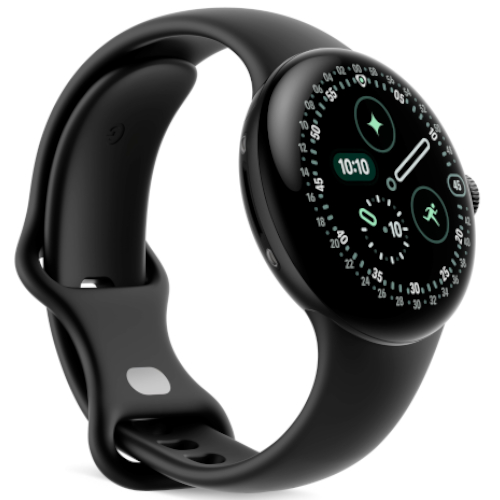
Best overall
The Google Pixel Watch 4 has a suite of accurate Fitbit sensors, but it added a new skin temperature sensor that establishes a typical body temperature range after three nights of sleep. It then warns if "you're out of your personal range" on any given night, signalling possible illness. Other useful health tools include a unique cEDA sensor that tracks skin sweat for stress data, Loss of Pulse detection, and an enhanced sleep algorithm. There's even a new Fitbit Personal Health Coach that analyzes health trends like skin temperature using Gemini smarts, with pop-up "insights" warning you of problems. The new app's still in beta until 2026, but it's very promising.
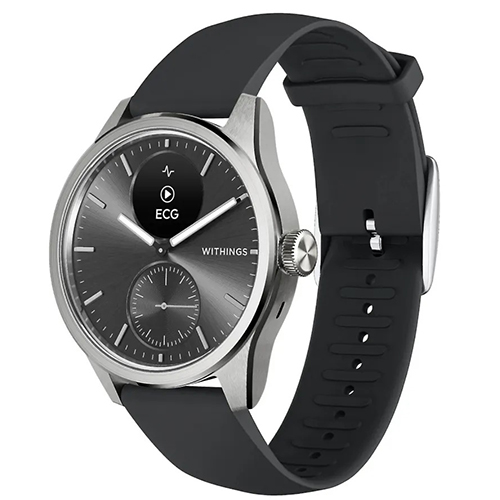
Best for continuous data
The Withings ScanWatch 2 is the rare wearable to measure skin temperature constantly — not just at night. The "TempTech24/7 Module," as the name implies, measures your temperature at all times with a thermistor and heat flux, sending notifications of potential illnesses or period predictions. It even creates workout temperature zones, warning if you've spent too long in the "Overheating Zone." You can even check your last reading and baseline variation in the display cutout. The only reason the ScanWatch 2 isn't our top recommendation is because it's not a "smartwatch," only a hybrid watch, but its health data and month-long battery life are still impressive.
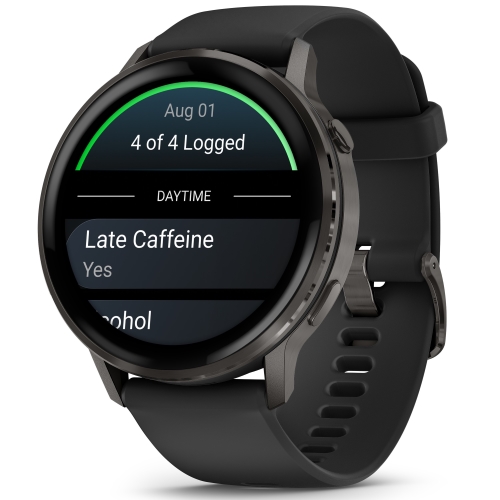
Best battery life and fitness tools
The Garmin Venu 4 sports the brand's most reliable fifth-generation Elevate sensor suite, which includes skin temperature and ECG readings. Where most of our smartwatch picks last 1–2 days per charge, the Venu 4 lasts 10–12 days. It introduced Garmin's latest Health Status tool, which measures skin temp, HR, HRV, SpO2, and breathing across 3–4 weeks to establish a baseline, then warns you whenever you have an "outlier" reading every night. While most Garmin watches focus on fitness, the Venu 4 is more balanced for those who care as much about health tracking. Choose the Venu 3, which also has skin temperature data, if the Venu 4 is a bit too expensive.
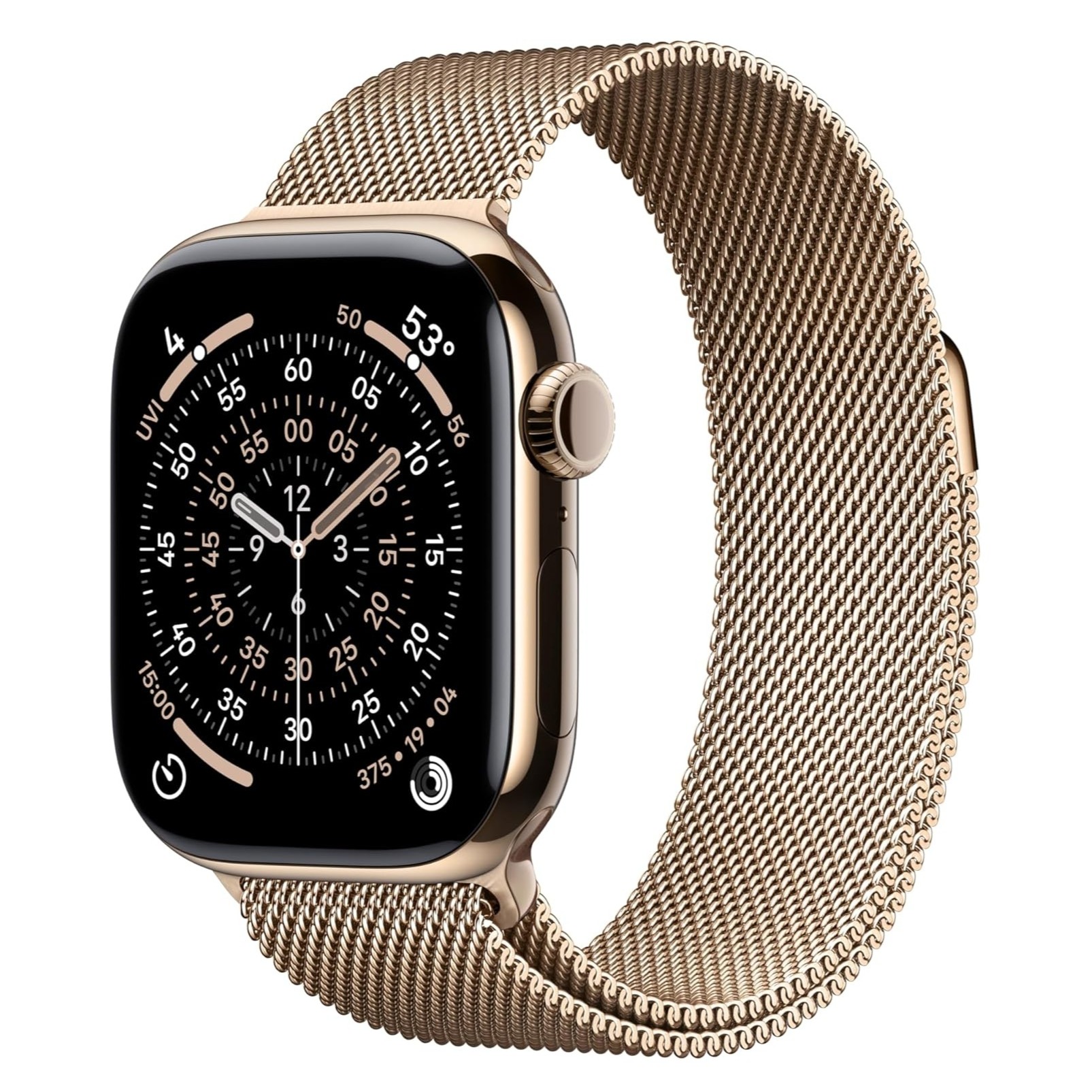
Best for iPhone owners
Apple originally tailored its skin temperature sensors for cycle tracking alone, but it eventually expanded the feature to create a nightly graph of your wrist temperature, comparing the results against your baseline down to the hundredth decimal. It even has a second water temperature sensor for real-time stats while diving or snorkeling. The Apple Watch is the best iOS option for true wearable apps and smarts, and it finally hits 24 hours per charge, making it more reliable for sleep tracking. It also has other health stats you'll appreciate, most notably its hypertension alerts.
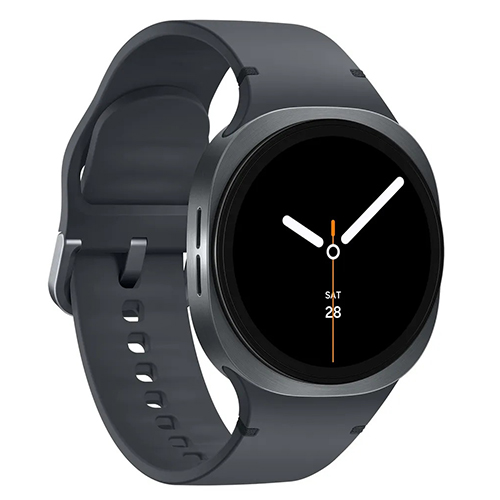
Best Wear OS alternative
The Pixel Watch 4's health insights depend on a Fitbit Premium subscription. The Galaxy Watch 8 also sports a temperature sensor and some Galaxy AI insights, but so far doesn't require a subscription. You'll see your nightly skin temp range in your sleep summary. Samsung also offers your typical HR, stress, ECG, and AFib detection data, as well as some unique data points like sleep apnea detection, antioxidant index for nutritional health, vascular load for heart health, and body composition analysis of your fat and muscle percentages. The Watch 8 is also quite light and skinny, making it well-suited for sleep tracking.
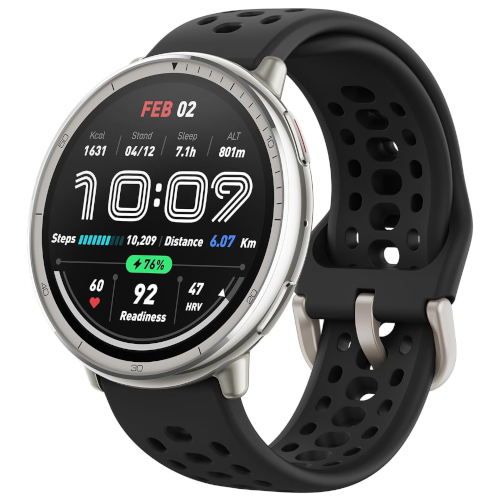
Best cheap option
Most of our recommendations fall into the typical $300–400 price range for a good smartwatch, as skin temperature data is typically associated with higher-end devices. The Amazfit Active 2 is a budget fitness watch that still offers HR, stress, SpO2, breathing rate, and skin temperature data, along with other health data like a readiness score and menstrual cycle tracking. It lasts about five days per charge, with a 1.32-inch, 2,000-nit AMOLED display for your notifications and hundreds of sports modes.
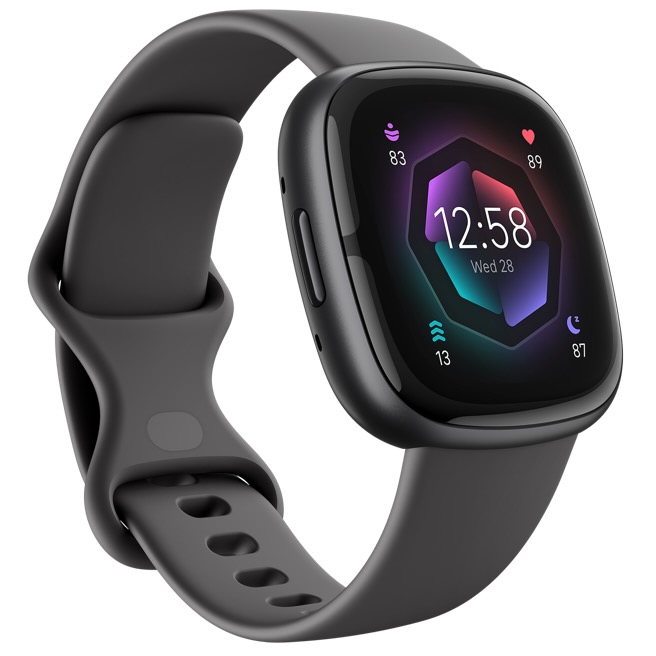
Best Fitbit alternative
Originally the expensive flagship of the Fitbit lineup, the Fitbit Sense 2 has taken a backseat to the Pixel Watch series, which stole all its sensors before improving on them. But that means the older Sense 2 is frequently on sale today, with still-accurate health sensors, a thin and lightweight design, 3X the battery life of a Pixel Watch 4, and compatibility with both Android and iOS. Its skin temperature sensor measures variation during sleep sessions, and its Fitbit app will offer the same Personal Health Coach AI insights when it launches in 2026.
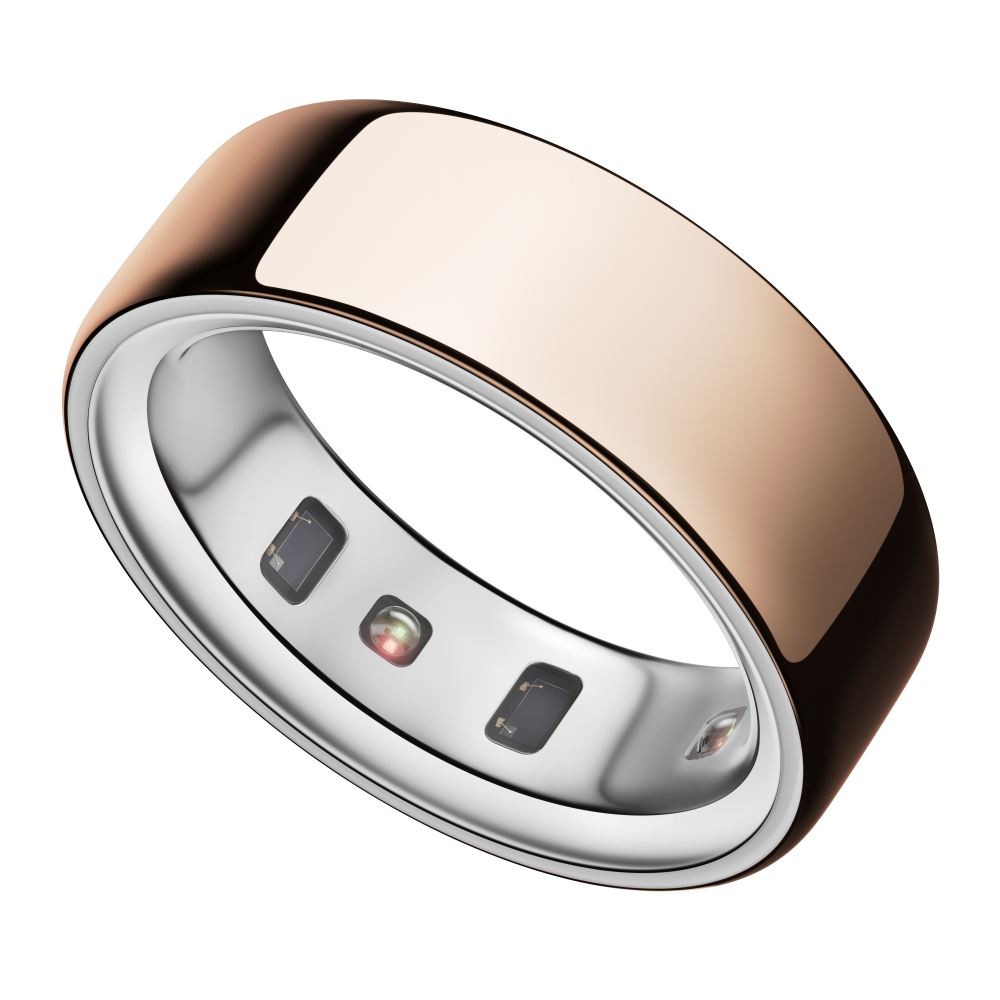
Best smart ring alternative
This list is for the best smartwatches, but let's be frank: Sleeping while wearing a smartwatch isn't comfortable for a lot of people. The best smart rings can't show notifications or apps, but they offer the same health stats and baseline variation data, while weighing 3 grams instead of 50+. In particular, the Oura Ring 4 monitors your health with excellent accuracy; the app shows a temperature baseline graph, cycle tracking, body stress "Resilience," and a Symptom Radar that measures minor or major signs of illness. It deluges you with health stats while you forget it's there.
Skin temperature is just one factor when deciding the best smartwatch
If you're hoping for a smartwatch that takes direct temperature readings, you're out of luck; no major brand offers that, and they wouldn't be useful, anyway, as they only provide surface-level readings, not core (or basal) body temperature.
Your main reason to buy a smartwatch with skin temperature readings is to establish a baseline so that the watch can warn you when you stray away from it. Maybe you're getting sick, or perhaps you're simply sleeping in overly hot or cold conditions; regardless, it can signal that something is wrong, so you know you're not imagining it or ignore the symptoms as normal.
If you're just looking for skin temperature data, the Withings ScanWatch 2 — or a fancier model like the ScanWatch Nova — is an easy recommendation, since it measures your stats continuously. But do you need 24/7 temperature data, or will you benefit more from better AI smarts (Pixel Watch 4), more robust fitness and training tools (Garmin Venu 4), a cheaper price tag (Amazfit Active 2), or a lighter fit (Oura Ring 4)? And are there are other health stats you'll care about just as much, like blood oxygen or AFib detection?
Only you can answer this question! But hopefully, our guide on the best smartwatches with temperature sensors has made this decision easier. Whichever you pick, your device will pick up the warning signs that your body is giving off, whether with skin temperature or any other health stat!
If you're still uncertain which to choose, you can check out our guides on the best fitness smartwatches or the best Android smartwatches overall, and see how your prospective pick compares for other stats!
Get the latest news from Android Central, your trusted companion in the world of Android

Namerah enjoys geeking out over accessories, gadgets, and all sorts of smart tech. She spends her time guzzling coffee, writing, casual gaming, and cuddling with her furry best friends. Find her on Twitter @NamerahS.
- Roydon CerejoContributor
- Christine PersaudContributor
